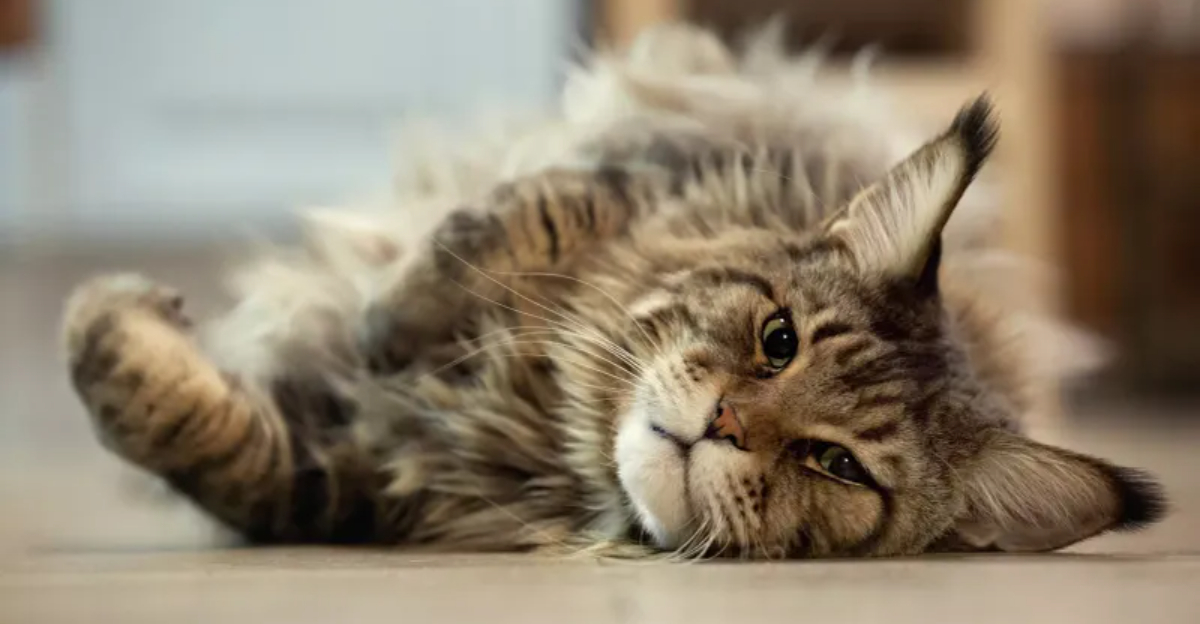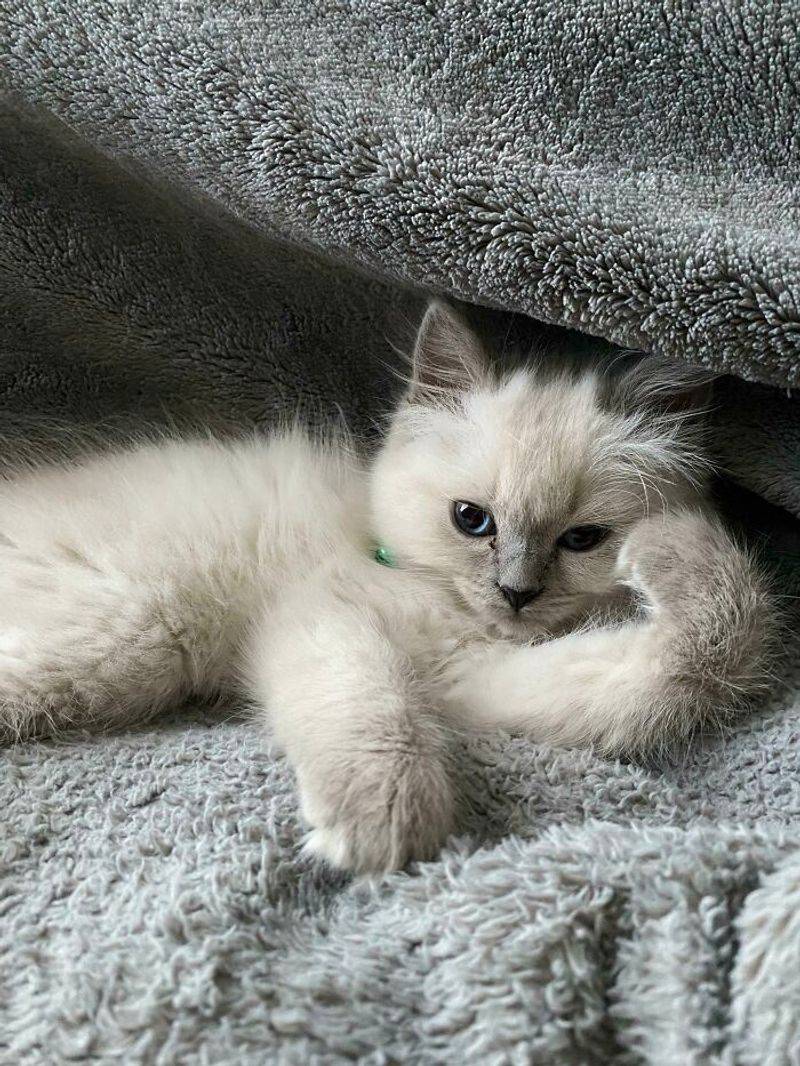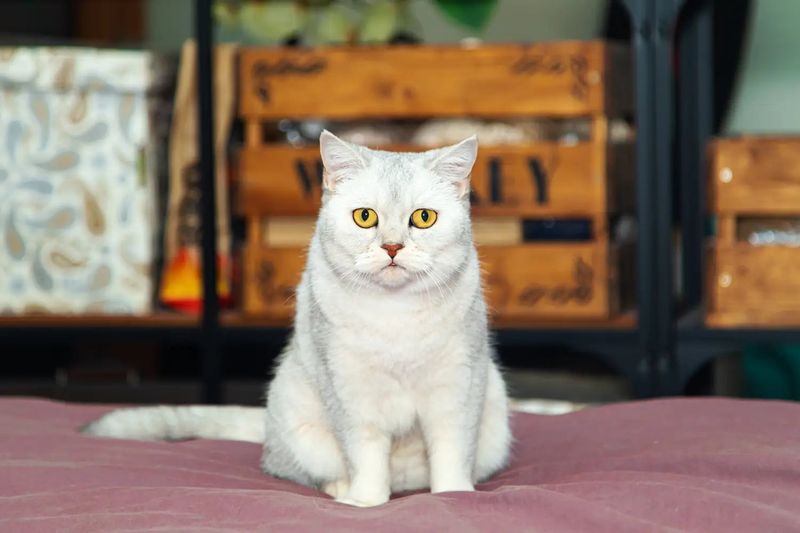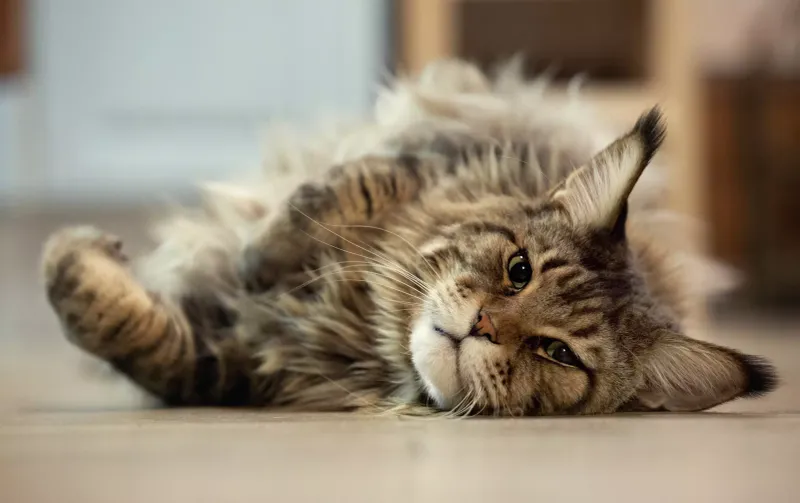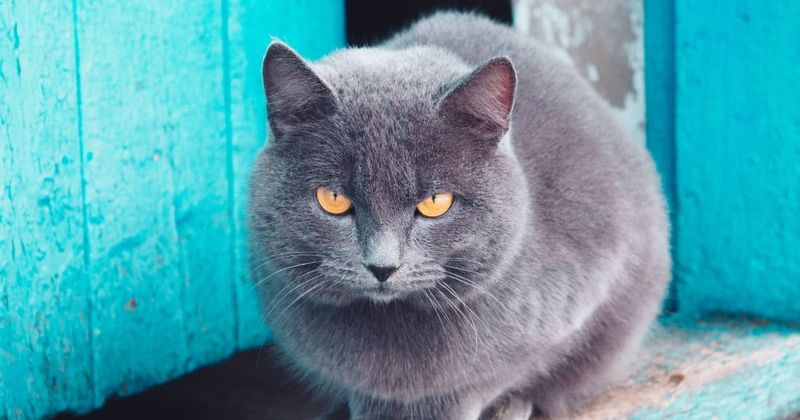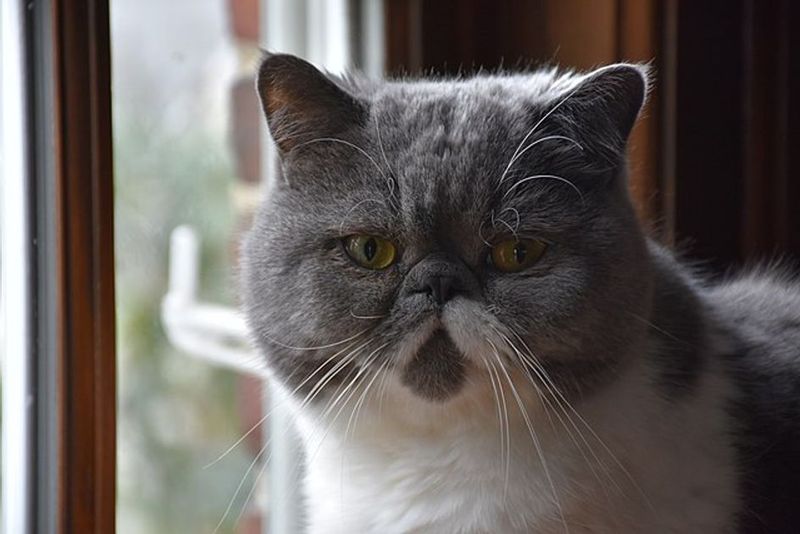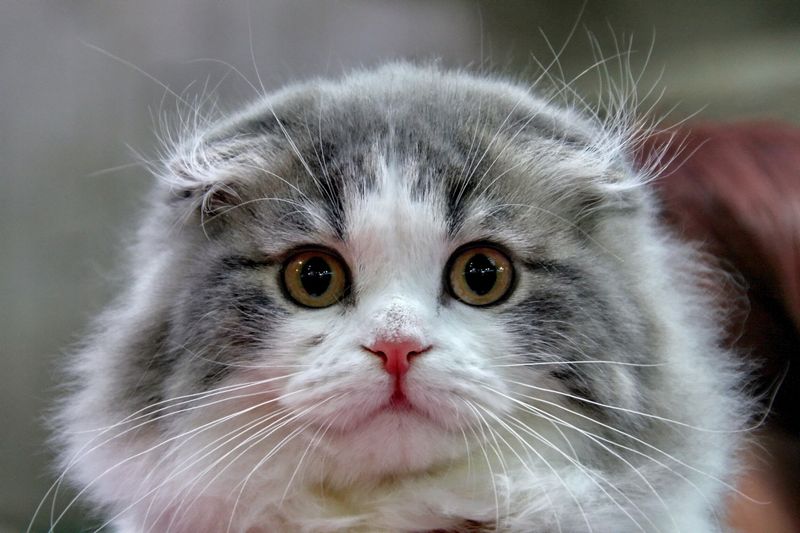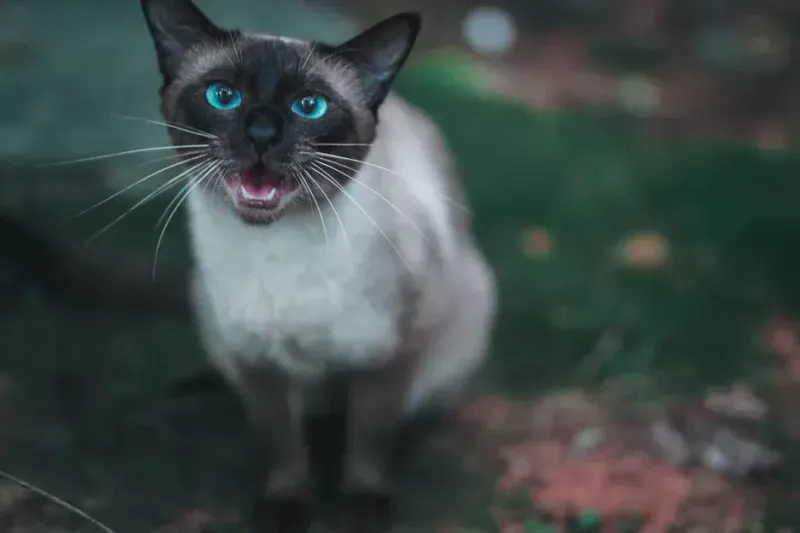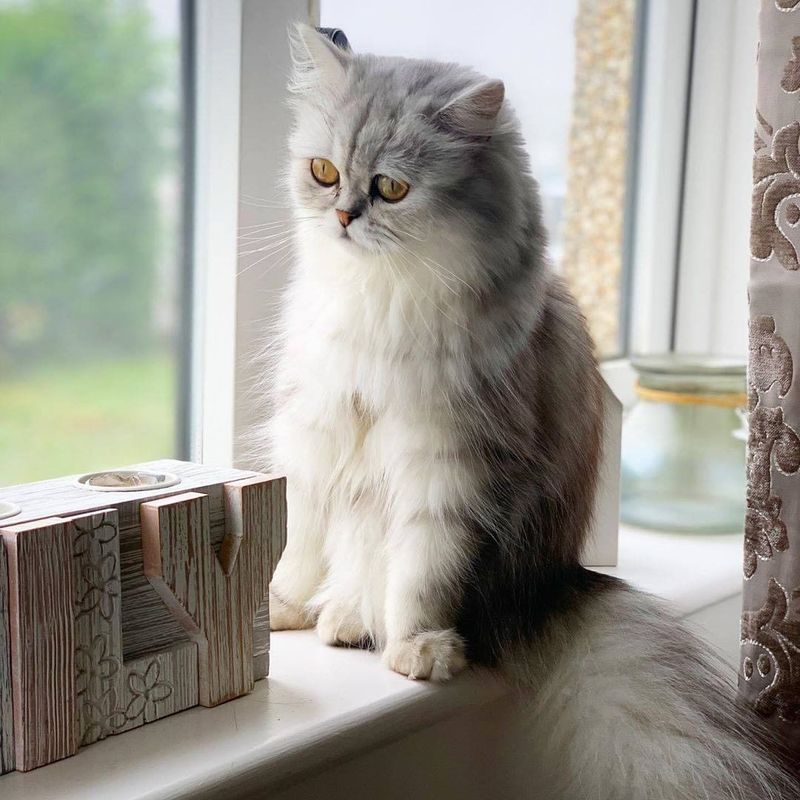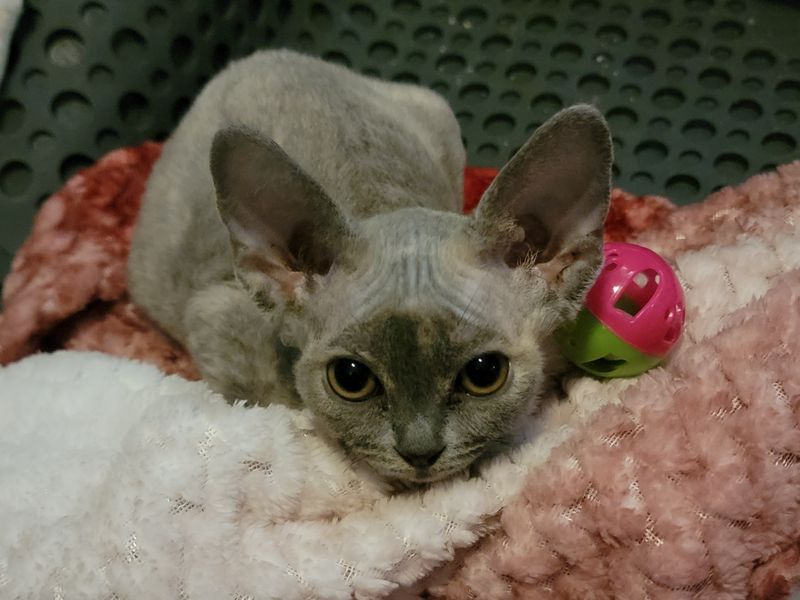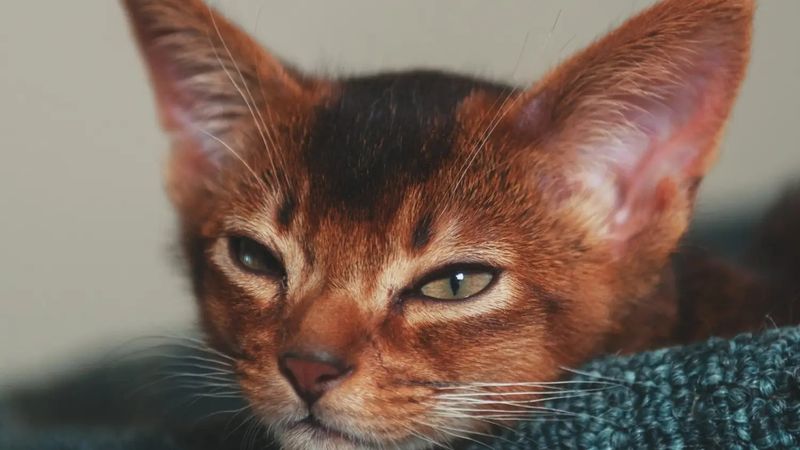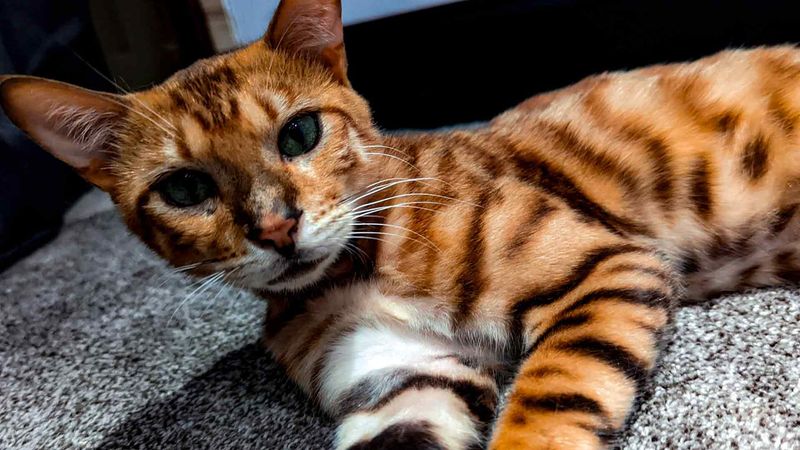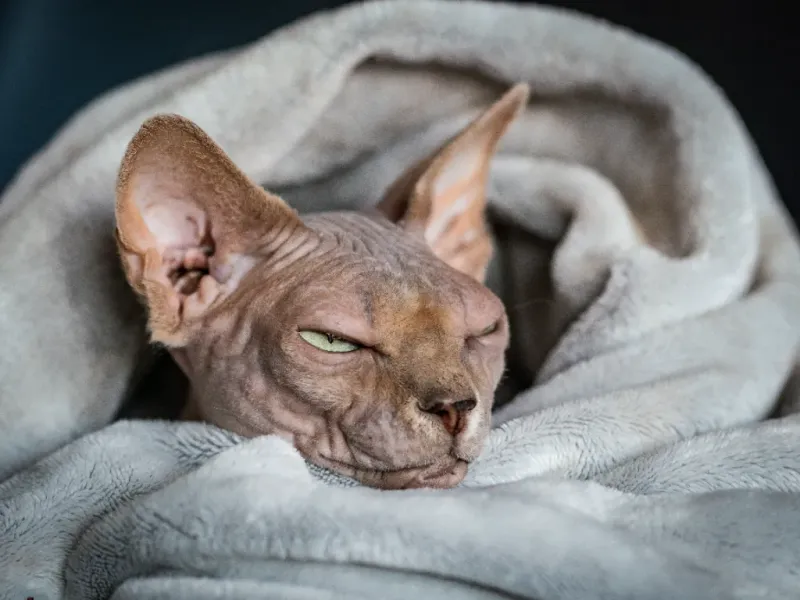📖 Table of Content:
Cats vary widely in how they respond to stress. While some remain calm during loud noises or unfamiliar situations, others react with sudden fear or avoidance. These differences often depend on personality, past experiences, and even breed.
Certain cats face disruptions like thunderstorms, vet visits, or strangers with steady nerves. They adapt quickly and recover without much fuss, showing emotional resilience. Others, however, may struggle with even small changes to their environment.
Recognizing a cat’s natural stress threshold is essential for their well-being. Some breeds are known for their calm demeanor, while others are more sensitive by nature. Identifying these traits helps in providing the right kind of care and comfort.
1. Ragdoll
Ragdolls are famous for going limp when picked up, earning their name from this relaxed trait. Their calm demeanor extends to most stressful situations, making them ideal apartment cats and family pets.
These blue-eyed beauties rarely get worked up over visitors, loud noises, or schedule changes. Many Ragdoll owners report their cats remain composed during car rides and vet visits when other cats might panic.
Their easygoing personality makes them excellent companions for busy households with children, other pets, or frequent guests. Just provide them with regular attention and gentle handling to maintain their trust and relaxed attitude.
2. British Shorthair
With an unshakable temperament, British Shorthairs remain composed during disruptions, showing little concern for the chaos that might unsettle more sensitive breeds.
Their self-assured nature helps them adapt to changes without showing signs of stress. When faced with loud noises or unfamiliar visitors, they typically observe from a safe distance rather than bolting in fear.
British Shorthairs prefer low-key interaction over high-energy play. This independent streak means they handle alone time well, making them suitable for working owners. Their ability to self-entertain without anxiety contributes significantly to their stress-resistant reputation.
3. Maine Coon
These gentle giants navigate change with grace, relying on their curious nature and quiet self-assurance to investigate rather than retreat.
Their social nature means they generally welcome visitors rather than hiding. Even trips to the vet or traveling in carriers cause less distress for these adaptable cats compared to more high-strung breeds.
Maine Coons develop strong bonds with their families but maintain enough independence to cope when left alone. Their balanced temperament means they recover quickly from unexpected changes or disruptions, quickly returning to their friendly, playful selves after initial adjustment periods.
4. Russian Blue
Russian Blues maintain remarkable composure thanks to their naturally reserved temperament. These silver-coated cats process new situations thoughtfully rather than reacting with fear or aggression.
While initially cautious with strangers, they remain polite observers rather than hiding in panic. Their measured approach to life helps them adapt to household changes with minimal stress once they’ve had time to assess the situation.
Russian Blues form deep bonds with their chosen humans but don’t demand constant attention. This independence helps them handle being alone without anxiety. Their quiet confidence and adaptability make them excellent companions for people with predictable routines who appreciate a cat that can handle occasional disruptions gracefully.
5. Exotic Shorthair
Inheriting the serene nature of Persians while adding a livelier edge, Exotic Shorthairs remain relaxed and composed even in unfamiliar situations.
These sweet-faced cats typically respond to loud noises or unexpected events by simply relocating to a quieter spot rather than panicking. Their adaptable nature means they generally accept new people and pets with minimal fuss after a brief adjustment period.
Exotic Shorthairs balance affection with independence, enjoying cuddles but also content to lounge nearby. This emotional stability contributes to their ability to handle stress gracefully, making them excellent companions for families seeking a cat that can roll with life’s changes.
6. Scottish Fold
Their calm demeanor and affectionate disposition make Scottish Folds unusually resilient, even when confronted with disruptions that might unsettle other cats.
These distinctive-eared cats adapt quickly to new environments, making them good travelers and adaptable companions. Their sociable nature means they typically greet visitors with curiosity rather than fear, though they maintain a gentle, undemanding presence.
Scottish Folds form strong bonds with family members but handle separation well. They rarely show destructive behaviors when left alone and quickly resettle after disruptions. Their balanced personality combines playfulness with an easygoing attitude that helps them navigate potential stressors with grace.
1. Siamese
Highly intelligent and deeply connected to their humans, Siamese cats tend to react strongly to stress, especially when left alone or feeling ignored.
Their vocal tendencies increase dramatically when upset, with distinctive yowls that clearly communicate their distress. Environmental changes like moving furniture, introducing new pets, or altering routines can trigger prolonged anxiety in these creatures of habit.
Siamese need consistent schedules and plenty of interaction to feel secure. Their high energy and intelligence require regular mental stimulation, without which they may develop stress-related behaviors like excessive grooming or destructive actions. Their emotional sensitivity makes them loving companions but requires thoughtful management.
2. Persian
Due to their naturally sensitive temperament, Persian cats often find stress difficult to manage, especially when faced with environmental disruptions like noise or unfamiliar faces.
These fluffy felines typically respond to anxiety by hiding for extended periods, sometimes refusing food or using inappropriate bathroom spots when overwhelmed. Their long coat requires regular grooming, which can become another source of stress if not introduced properly from kittenhood.
Persians thrive in calm, predictable environments with minimal changes. Their low-energy lifestyle means they prefer peaceful contemplation over stimulating play. When stressed, they may develop health issues like digestive problems or excessive shedding, making stress management especially important for their well-being.
3. Devon Rex
Although they’re often seen as playful, Devon Rex cats are quite sensitive to their surroundings, with their fine coat providing minimal defense against temperature changes and other environmental stress.
These elfish felines form intense bonds with their humans and can experience separation anxiety when left alone for extended periods. Their high intelligence means they notice subtle changes in routine or environment that other cats might ignore.
Devon Rex cats need consistent handling and gentle introduction to new experiences. When stressed, they may display excessive vocalization or develop compulsive behaviors like overgrooming. Their thin skin makes them especially sensitive to touch when anxious, requiring owners to recognize subtle signs of discomfort and provide appropriate space.
4. Abyssinian
Abyssinians approach life with high energy that can quickly turn to anxiety when their environment feels restricting or unstimulating. Their extraordinary intelligence and curiosity require constant mental engagement, without which they can develop stress-related behaviors.
These active cats communicate tension through excessive vocalization, pacing, or destructive scratching. Their need for physical activity means confined spaces or limited play opportunities can trigger significant stress responses, unlike more sedentary breeds.
Abyssinians form strong bonds with their humans but may struggle with changes in household composition. New pets, visitors, or schedule disruptions can upset their sense of territory and routine. Their sensitive nature requires owners who understand that their playfulness can quickly transform to nervous energy when their environment feels unpredictable.
5. Bengal
The wild lineage of Bengals contributes to their heightened stress responses, and their intense energy levels, if not directed, often result in anxious behaviors like constant vocalization or destructive actions.
Their high intelligence means they require complex environmental enrichment to prevent boredom-related stress. Without adequate climbing spaces, interactive toys, and mental challenges, Bengals quickly become frustrated and anxious.
Routine changes often trigger stress responses in these sensitive cats. They typically form strong attachments to specific family members and may show signs of separation anxiety when their favorite person is absent. Their wild heritage makes them more reactive to environmental stimuli like strange noises or unfamiliar visitors.
6. Sphynx
The hairless nature of Sphynx cats makes them uniquely sensitive to stress, as their exposed skin is more susceptible to temperature fluctuations, sunlight, and even the textures of fabrics.
These social creatures form extremely strong bonds with their humans and often experience separation anxiety when left alone. Their need for physical warmth means they seek constant contact, becoming distressed when unable to cuddle with their preferred person or pet companion.
Sphynx cats require special accommodations like sweaters in cold weather and sunscreen for outdoor time. Their unusual appearance attracts attention that can overwhelm them in new situations. When stressed, they may excessively groom (despite having no fur), hide, or develop digestive issues requiring prompt attention.
